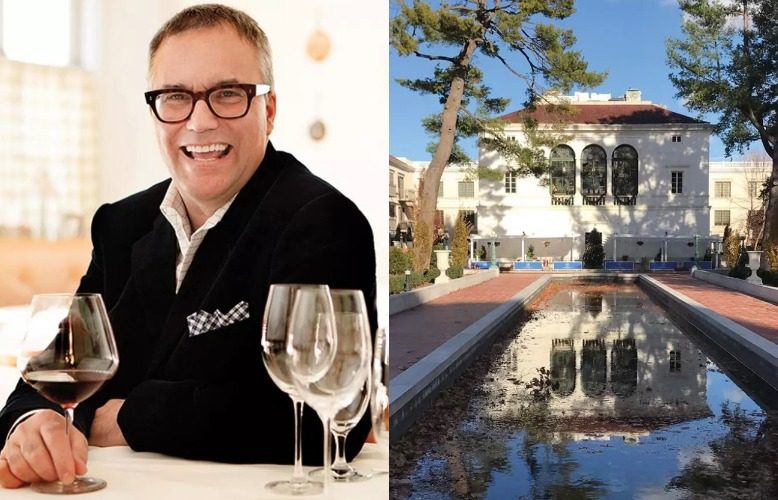
Editor’s Note: Chris Cannon, owner of Jockey Hollow Bar & Kitchen in Morristown, an NJM Top 30 restaurant, is a veteran hospitality professional with more than 30 years of experience. Before opening JHBK in 2014, Cannon ran five Manhattan restaurants (L’Impero, Alto, Judson Grill, Convivio and Marea), each of which earned three stars from the New York Times.
JHBK features locally sourced ingredients from Cannon’s partnership with Forty North Oyster Farms in Mantoloking and other purveyors, including Flocktown Farm in Chester and Let it Grow Farm in Pittstown. Since its opening, JHBK has raised more than $300,000 for an array of non-profits serving families, children, health, the arts and education. Cannon, an avid cook, gardener and cyclist, lives with his family in Mountain Lakes.
Cannon recently sent out an email with his thoughts on the future of restaurants after the pandemic. We’re republishing it here.
Recently, and much to my dismay, I have read articles that unequivocally predict the death of the restaurant industry as we know it. In particular, the full-service restaurant has been relegated to certain extinction, along with the white rhinoceros.
I disagree fundamentally with that prognosis. I have worked in restaurants for the last 40 years, surviving the crashes of 1988, 2001, and 2008 in New York City. In fact, my biggest successes followed the crisis of 9/11, with the opening of L’Impero, and the 2008 financial meltdown, with the opening of Marea. Both restaurants were recognized as Best New Restaurant in the United States by the James Beard Foundation, and both were contrarian responses to the prevailing wisdom of their times.
When I opened my business in New Jersey, post Hurricane Sandy in 2014, I helped fund the resurgence of the oyster industry as a partner in Forty North Oyster Farm in Mantoloking, at the epicenter of the devastation. I am proud that my restaurant, Jockey Hollow Bar and Kitchen in Morristown, has, in the last five years, become a leader in supporting and promoting the potential of the New Jersey food scene and in funding local philanthropy, culture and art.
Over these many years, I have come to understand that it is human nature to overreact to crises and exaggerate the dire consequences that await us, in our need to release our angst. The mass media has always preyed upon that anxiety, as they compete minute by minute to be hyper dramatic and sensational to attract clicks, viewers and readers.
As in the past, this current period of pain will become a memory. We should seek comfort in the perspective that we survived the complete economic devastation and 75 million deaths of World War II, just 75 years ago. We should not forget that we subsequently generated one of the greatest periods of sustained prosperity and technological expansion in history.
The restaurant industry has seen a boom and unprecedented glut in the last 15 years fed by an explosion of interest in television shows, celebrity chefs and cooking competitions.
The sector has throughout remained completely saturated, which has led to cutthroat competition, price stagnation, and the extreme tightening of profit margins across the board (while costs have continued to rise). Furthermore, the significant entry into the food industry of monopolies and mega chains has led to predatory pricing (further shrinking margins) as these giants have sought to gain market share at the expense of smaller local businesses.
As a result of this and the current crisis, many restaurants in the near future will sadly fail, and people will be more reluctant to enter the sector. The businesses that survive should theoretically end up in a stronger position, with less competition and less pressure to keep prices flat. (Hopefully, states and the federal government will address predatory pricing, monopoly and anti-trust issues). This contraction, allowing prices to rise, should also give restaurants the ability to pay a higher living wage to employees and to become a more sustainable industry as a whole. We all are becoming painfully aware that the current industry model, its labor and pricing structure, has been on a sure path to self-destruction for years.
After this pandemic, there will of course be more awareness of sanitation and the importance of public health protocols, but the currently espoused idea that we humans, as extremely social beings, will shun restaurants in perpetuity is absurd.
We will always need to see and be seen, to commune with one another, to laugh, to share. In short, to live. Plus, cooking dinner each and every night at home gets old pretty fast!
The coming months will be painful, but it is my hope that we can come to see this difficult experience as an inevitable correction, allowing us to make necessary and positive changes to make the industry stronger and more equitable. I know that our shared losses and sacrifices will teach us to better respect our planet and to take our responsibility to each other as human beings more seriously. Let’s all look forward to appreciating what we have and the opportunity to make things better together. It’s what we do best as Americans.
I look forward to welcoming all my friends back soon to my home at Jockey Hollow Bar and Kitchen. I miss you all so much.
We asked Cannon if he would hazard a guess as to what level of price increase might help restaurants survive and also be accepted by the dining public. His reply: “15%?”
